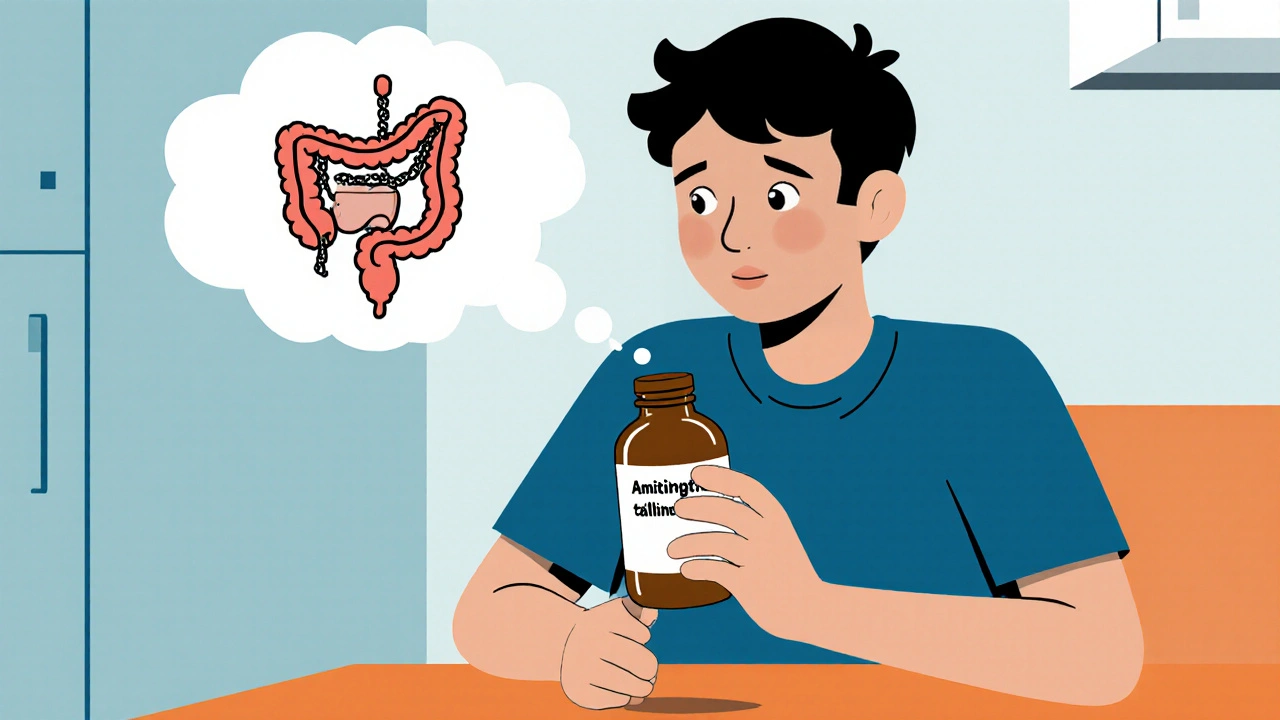Amitriptyline and Constipation: Causes, Risks, and How to Manage Them
Learn why amitriptyline often causes constipation, who’s at risk, and practical steps to prevent or treat it while staying on the medication.
Continue ReadingWhen you can’t have a bowel movement for days, it’s not just uncomfortable—it’s a signal your body is out of sync. Constipation, a condition where stool moves too slowly through the colon, leading to infrequent, hard, or painful bowel movements. Also known as slow transit, it affects nearly one in four adults at some point, and often, the cause isn’t just eating too little fiber. It’s not always about diet. Many common medications, from painkillers to antidepressants, directly slow down your gut. If you’re on opioids for chronic pain, or even taking antacids with aluminum, you might be unknowingly fueling the problem.
Laxatives, drugs designed to stimulate bowel movements or soften stool. Also known as stool softeners, they’re often the first fix people reach for—but they’re not a long-term solution if the root cause isn’t addressed. Some types, like stimulant laxatives, can damage your colon’s natural rhythm if used too often. And then there’s opioid-induced constipation, a side effect caused by pain meds binding to receptors in the gut, slowing muscle contractions. It’s so common in people on long-term opioids that doctors now screen for it upfront. Even some blood pressure pills, antidepressants, and iron supplements can do the same thing. You’re not imagining it—if your constipation started after a new prescription, that’s likely the trigger.
What’s missing from most advice? The connection between your nervous system and your gut. Stress, lack of sleep, and even ignoring the urge to go can train your body to hold it in. And over time, that weakens the signals. You don’t need to drink eight glasses of water a day or eat kale every morning. But moving your body—even a daily 20-minute walk—can wake up your colon. And if you’re taking meds that cause this, talk to your doctor about alternatives or adding a gut-specific treatment like lubiprostone or methylnaltrexone. These aren’t magic pills, but they work where fiber and laxatives fail.
Below, you’ll find real-world guides on how specific drugs—like methadone, Omeprazole, or even common cold meds—can quietly wreck your digestion. You’ll also see what actually helps when nothing else does, and how to tell if your constipation is harmless or a sign of something deeper. No fluff. Just what works, what doesn’t, and what you need to ask your doctor next time.

Learn why amitriptyline often causes constipation, who’s at risk, and practical steps to prevent or treat it while staying on the medication.
Continue Reading